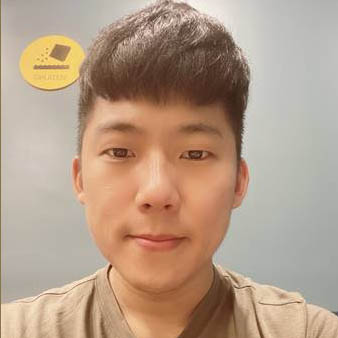



Research areas include medical devices, kidney disease, vision loss prevention and HIV treatments, among others
Each summer, a select group of University of Washington undergrads are given the unique opportunity to improve their research and commercialization skills with a paid internship through the CoMotion Mary Gates Innovation Scholars (CMGIS) program. This year, ten students will help advance almost a dozen UW innovations in development across the university including at the School of Medicine, Institute for Protein Design, Applied Physics Lab, College of Engineering, and the College of Arts & Sciences.
Over the coming months, we will share more about the undergrad research students who are helping to bring these innovations from idea to impact. This month, we highlight two projects from the Institute for Protein Design (IPD) and one from the Human Photonics Lab in the Department of Mechanical Engineering.
The business of proteins
Biology sophomore Christina Kuismi is researching the business case analysis for proteins involved in gene therapies that could be used as a treatment for Stargardt Disease which causes progressive vision loss, particularly in young people. She works under the guidance of IPD primary investigator (PI) Lance Stewart. Christina is passionate about researching future applications of epigenetics, developing new gene therapies, and improving delivery methods for gene therapies. Through the CMGIS experience, she hopes to learn more about large-scale research and collaboration between biomedical companies. Christina’s plans include pursuing a master’s degree and researching genetic therapies in regards to heritable cancers and studying epigenetic applications to precision medicine.
Bioengineering senior Jay Lee is conducting novel product market research for the JGJ Translational Lab under the IPD’s Entrepreneurship Internship program. Jay works under the guidance of IPD PI Jorge Fallas. Jay is passionate about learning and hopes to gain knowledge about business operations while making contributions to this project. His future plans include launching his own biomedical startup.
Search for a painless medical tape
Eric Seibel’s medical tape innovation, UnTape, will gain the support of bioengineering senior Katherine Zhang and biology senior Jason Chan. This innovation is a new medical tape that can be removed quickly and painlessly through the application of heat while still retaining its high adhesive properties. These properties are necessary to hold medical devices in place, cover wounds, hold together the skin edges of a wound, and support an injured part of the body. Katherine and Jason will be designing experiments that will alter components of the medical tape in order to optimize its properties and will also work on customer development. In addition, they will provide project members with valuable information from key stakeholders such as nurses and patients regarding their experiences with medical tape, as well as their opinion and ideas for improvement on the UnTape prototype.
Katherine enjoys research centered around increasing accessibility to healthcare, specifically in low-resource countries. Jason has a passion for research that improves healthcare for both patients and practitioners, as well as research related to the study of infectious diseases and global health. He is excited about working on a product that improves both the performance of healthcare professionals and the care of patients, and also provides “the adventure of an up and coming startup.” Read more about Eric Seibel and his innovations.
Katherine and Jason are also currently enrolled in the NSF I-Corps program where they are learning about the commercialization of the Untape product, and directly applying those newly obtained skills to improve the existing prototype. Jason plans to pursue graduate studies in the health care field and continue research on medical devices and global health. Katherine’s future plans include a research capstone during which she hopes to publish and present in Spring 2021, and continue her studies by pursing a master’s degree in bioengineering or public health. Because she is considering going into the field of medical device development, Katherine is excited that her work this summer may have a near-term impact.
Check back next month for the next installment of our blog series about the CoMotion Mary Gates Innovation Scholars, or sign up for our newsletter so you don’t miss it!